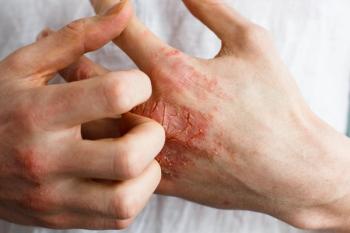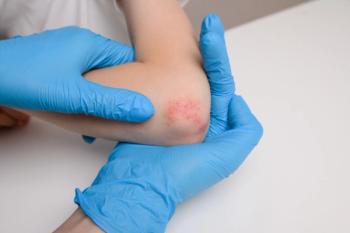
BLA Submitted for Lebrikizumab Atopic Dermatitis Treatment
BLA submission is based on phase 3 trial results evaluating the safety and efficacy of lebrikizumab.
According to its quarterly earnings report, Eli Lilly and Company has submitted its Biologics License Application (BLA) to the US Food and Drug Administration (FDA) for lebrikizumab, an interleukin (IL)-13 inhibitor for moderate-to-severe atopic dermatitis (AD). The BLA submission is based on results from 3 phase 3 trials evaluating the safety and efficacy of lebrikizumab, a monotherapy, in combination with standard-of-care topical corticosteroids in adults and adolescents aged 12 years and older.1
Lebrikizumab monotherapy was successful in improving AD in 80% of patients at the end of the first year, according to results from the 52-week, randomized, double-blind, placebo-controlled, parallel-group phase 3 ADvocate 1 and 2 trials. Patients first received 500 mg of lebrikizumab and another dose at 2 weeks, followed by 250 mg or placebo every 2 weeks during a 16-week treatment period.2
After week 16, patients who achieved a clinical response, defined as the Eczema Area and Severity Index (EASI) score of 75, were randomly selected to receive lebrikizumab every 2 or every 4 weeks or the placebo for an additional 36 weeks.
In the ADvocate 1 trial, 79% of patients who received lebrikizumab every 4 weeks and 79% of patients who received lebrikizumab every 2 weeks maintained EASI75 throughout the first year. In the ADvocate 2 trials, 85% of patients who received lebrikizumab every 4 weeks and 77% of patients who received it every 2 weeks maintained EASI75.
The FDA granted lebrikizumab Fast Track designation in AD in December 2019. The lebrikizumab phase 3 program includes 5 key global studies evaluating more than 2000 patients, including 2 monotherapy studies (ADvocate 1 and 2), a combination study with topical corticosteroids (ADhere), and long-term extension (ADjoin) and adolescent open-label (ADore) studies.
According to Eli Lilly, lebrikizumab is a novel, investigational, monoclonal antibody developed to bind IL-13 with high affinity, slow disassociation rate, and high potency to prevent the formation of the IL-13Rα1/IL-4Rα heterodimer complex and subsequent signaling to inhibit the biological effects of IL-13. AD is an IL-13 dominant disease, and IL-13 is responsible for skin barrier dysfunction, itch, skin thickening, and susceptibility to infection.
References
- Eli Lilly submits biologics license application to FDA for lebrikizumab. Healio. Published November 4, 2022. Accessed November 7, 2022.
- Lebrikizumab dosed every four weeks maintained durable skin clearance in Lilly’s phase 3 monotherapy atopic dermatitis trials. Eli Lilly and Company. Published September 8, 2022. Accessed November 8, 2022.
Newsletter
Pharmacy practice is always changing. Stay ahead of the curve with the Drug Topics newsletter and get the latest drug information, industry trends, and patient care tips.























